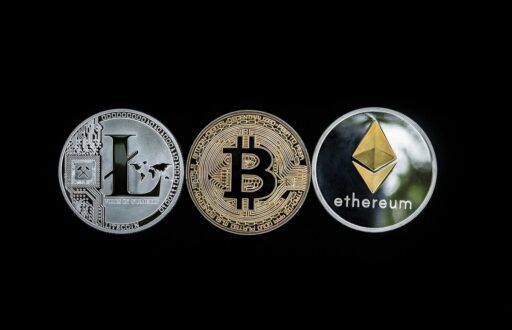In the dynamic and ever-evolving landscape of cryptocurrency, selecting the right wallet is crucial for both asset security and ease of use. Our comprehensive review of the best crypto wallets of the year is designed to guide you through the options, whether you’re a long-term holder, active trader, or a user who’s always on the move. We’ve scrutinized a variety of wallets to present our top picks, helping you make an informed choice that aligns with your crypto needs.
Key Takeaways
- Material Bitcoin and Ledger Hardware Wallet are top choices for secure long-term storage, reflecting a growing market need for reliable cold storage solutions.
- Exodus Wallet and Crypto.com are highlighted for their trading efficiency and hot wallet convenience, catering to users seeking swift transactions.
- Mobile users can rely on Cryptowallet.com and BlueWallet for on-the-go access, emphasizing the importance of user-friendly experiences in mobile applications.
- Decentralized wallets gain prominence for their privacy and security features, with a curated list of the best options available in 2024.
- A step-by-step guide is provided for choosing the ideal wallet, considering factors like security, features, user reviews, and personal crypto needs.
Comprehensive Guide to the Best Bitcoin Wallets of 2024

Material Bitcoin: The Vault for Long-Term Holders
For those looking to secure their Bitcoin investments over the long haul, Material Bitcoin offers an unparalleled level of physical security. This wallet’s design is centered around a robust metal plate, which is not only resistant to fire, water, and shock but also ensures that your assets remain tangible and under your control.
- Durability: Fireproof, waterproof, and shockproof metal plate.
- Security: Self-custody with a cold wallet approach.
- Simplicity: User-friendly, even for crypto newcomers.
Material Bitcoin’s emphasis on durability and security makes it an ideal choice for investors who prioritize long-term safeguarding of their assets. Its tangible nature and the fact that it’s a cold wallet mean that you are in full control, mitigating the risks associated with online storage.
In the ever-evolving landscape of cryptocurrency, the value of a secure and durable wallet cannot be overstated. Material Bitcoin stands as a testament to this, offering a solution that is as solid as the metal it’s crafted from.
Exodus Wallet: The Trader’s Gateway
Exodus Wallet has emerged as a favorite among traders for its blend of simplicity and advanced features. It’s praised for its user-friendly interface and the ability to perform instant coin swaps, making trading both accessible and rapid. With support for around 300 cryptocurrencies, Exodus caters to a wide range of trading activities.
Exodus’s commitment to regular updates enhances its security posture, but as a hot wallet, it remains inherently online. For added security, pairing with a hardware wallet is advisable for safeguarding larger crypto holdings.
Here’s a quick look at the pros and cons:
- Pros: User-friendly, supports a vast array of cryptocurrencies, compatible with hardware wallets for enhanced security.
- Cons: As a hot wallet, it’s more exposed to online threats, and currently, it supports only BTC, Ether, and USDT for physical seed phrase storage.
Cryptowallet.com: On-the-Go Access for Mobile Users
For those who need their digital assets at their fingertips, Cryptowallet.com stands out as a top contender. Its seamless integration with a Crypto Card allows users to effortlessly transition from digital currency to real-world purchases. This feature is particularly appealing for those who frequently use their crypto holdings for transactions.
The app’s design prioritizes user experience, with an intuitive interface and robust security measures, including 2FA and biometric logins. However, it’s important to remember that as a software wallet, it is inherently more vulnerable to online threats compared to hardware options.
Cryptowallet.com’s 24/7 customer support and the ability to handle over 800+ cryptocurrencies make it a versatile choice for mobile users.
While mobile wallets offer unparalleled convenience, they should be used with caution and awareness of potential security risks. Cryptowallet.com provides a balance of accessibility and security, making it a strong candidate for the best mobile crypto wallet app of the year.
Decentralized Wallets: The Powerhouses of Privacy and Security

Understanding Decentralized Wallets
Decentralized wallets are the cornerstone of self-custody in the cryptocurrency world, providing users with exclusive control over their private keys. This autonomy ensures that users are the sole custodians of their wealth, free from reliance on third parties.
However, with great power comes great responsibility. Users must acknowledge that the safety of their funds hinges on their vigilance and understanding of the wallet’s security features. Decentralized wallets, while empowering, do not absolve users from the risks of hacking or loss of access due to misplaced private keys.
Decentralized wallets are synonymous with the ethos of blockchain – autonomy and security. Yet, they demand a proactive approach to safeguarding one’s digital assets.
When considering a decentralized wallet, it’s crucial to weigh the trade-off between convenience and security. For instance, software wallets offer ease of use for frequent trading but are more susceptible to online threats. Therefore, it’s advisable to store only minimal amounts of cryptocurrency in such wallets for active use.
Selecting the Best Decentralized Wallet:
- Evaluate the wallet’s security features and track record.
- Consider the wallet’s compatibility with Web3 applications.
- Determine the level of anonymity provided.
- Assess the balance between convenience and security.
- Always remember, the responsibility of safeguarding private keys lies with you.
Top Decentralized Wallets of the Year
As the crypto landscape evolves, the importance of security and autonomy in managing digital assets has never been greater. Decentralized wallets have emerged as a cornerstone for those seeking full control over their private keys. This year’s top picks reflect a diverse range of wallets that cater to different needs and preferences.
- Ellipal stands out with its air-gapped transactions, setting a new standard for security in decentralized wallets.
- Wallets like Ledger continue to dominate the hardware wallet space, offering robust security for long-term holders.
- For desktop users, wallets such as Exodus provide a seamless interface with a multitude of features.
Decentralized wallets empower users to be their own bank, but with great power comes great responsibility. It’s crucial to assess the security features of each wallet, as the risk of hacking persists despite the absence of third-party control.
The table below encapsulates the essence of the best decentralized wallets, highlighting their unique features and security measures. It’s a snapshot of what to expect when choosing the ideal wallet for your crypto journey.
How to Choose a Decentralized Wallet
Selecting the right decentralized wallet is a pivotal decision for any crypto investor. Security is paramount, as decentralized wallets grant you full control over your private keys, eliminating the need for third-party involvement. Yet, this autonomy also means you bear the full responsibility for safeguarding your assets.
When evaluating decentralized wallets, consider the following points:
- Security features: Look for wallets with robust security measures such as two-factor authentication, multi-signature support, and regular software updates.
- User experience: A wallet should be user-friendly, with an intuitive interface that doesn’t compromise on security.
- Compatibility: Ensure the wallet supports the cryptocurrencies you intend to use and is compatible with your devices.
- Backup and recovery: Check for clear and secure backup and recovery options to protect against accidental loss.
Increased convenience can sometimes lead to reduced security. Therefore, it’s crucial to find a balance that suits your needs, whether you’re actively trading or securely storing assets long-term.
Remember, while the allure of convenience is tempting, it should not overshadow the necessity of stringent security measures to protect your investments.
Hardware vs. Software Wallets: An In-Depth Comparison

The Cold Storage Advantage: Ledger and Others
When it comes to securing your digital assets, cold storage wallets like Ledger offer a significant advantage. These devices store your private keys offline, shielding them from online threats and unauthorized access. Ledger, known for its robust security features, has become a go-to choice for many crypto investors.
-
Pros:
- Secure offline storage
- Wide range of supported cryptocurrencies
- Regular security audits
- User-friendly interface
-
Cons:
- Higher price point
- Limited support for some tokens
- Potential fees
The essence of cold storage is to provide a fortress for your digital wealth, with devices such as the Ledger Nano S Plus and ELLIPAL Titan 2.0 leading the charge. They not only support a vast array of tokens but also incorporate industry-standard security measures to ensure peace of mind.
The Ledger wallet’s ability to integrate with other wallets and platforms allows for a seamless crypto experience. Users can engage in staking, manage NFTs, and even participate in exchanges directly from their device. While the convenience of Bluetooth connectivity in newer models is appealing, it’s worth considering the trade-offs in terms of security for the added convenience.
Navigating Hot Wallets: Crypto.com and Its Contemporaries
In the dynamic world of cryptocurrency, hot wallets serve as a crucial gateway for daily transactions and active trading. Unlike their cold storage counterparts, hot wallets are connected to the internet, offering convenience and quick access to the crypto market. However, this convenience comes with a need for heightened security measures to protect digital assets.
The 2023 guide to best crypto wallets highlights the importance of a wallet’s ability to balance security with user convenience. For many, the ideal hot wallet integrates not just robust security protocols but also features like integrated staking and exchange integration, catering to both the casual user and the savvy investor.
When considering a hot wallet, it’s essential to evaluate the following aspects:
- Security: Look for wallets with strong encryption and multi-factor authentication.
- Convenience: User-friendly interfaces and easy setup are key for a seamless experience.
- Features: Advanced options such as integrated staking and in-wallet exchanges enhance utility.
- Support: Ensure there is reliable customer support for troubleshooting.
As the crypto landscape evolves, future innovations in hot wallets are poised to further empower users, making it more important than ever to stay informed and choose a wallet that aligns with your investment strategy and security needs.
Remember, while hot wallets offer a high degree of flexibility, they should not be the sole repository for your entire crypto portfolio. Diversifying storage methods and understanding the trade-offs between hot and cold wallets can significantly enhance your crypto asset security.
Hybrid Solutions: Best of Both Worlds with SafePal
SafePal has emerged as a best-in-class hybrid crypto wallet, combining the convenience of mobile access with the security of hardware wallet integration. Users can enjoy the ease of trading and managing their assets on the go, while also having the option to connect to hardware devices like Ledger or Trezor for an extra layer of security.
One notable feature of SafePal is its integration with decentralized exchanges (DEXs) and other DeFi protocols. This allows for direct trading from the wallet interface, offering a gateway to the DeFi world with activities such as lending, borrowing, and yield farming.
SafePal’s offline storage capability and secure element chip ensure that your digital assets are protected against unauthorized access and cyber threats.
However, it’s important to be aware of the potential downsides. Some users may find the fees for transactions higher than average, and the wallet may not support all cryptocurrencies. Additionally, customer support options are somewhat limited, which could be a concern for users requiring assistance.
Specialized Crypto Wallets: Catering to Diverse Needs

Desktop Pioneers: Electrum’s Enduring Legacy
Electrum has stood the test of time, emerging as a top choice for desktop users since its inception in 2011. Its commitment to security is evident through features like hierarchical deterministic setups and multi-signature transactions, which have cemented its reputation among long-term Bitcoin enthusiasts.
The wallet’s compatibility with various hardware wallets and its encryption protocols ensure that users’ assets are safeguarded, while the simple interface caters to both beginners and seasoned users. Despite its robust security measures, Electrum maintains a user-friendly experience, making it a go-to for desktop-based crypto management.
- High security with encryption and password protection
- Multi-currency support within a single wallet
- User-friendly interface for ease of use
Cons:
- More limited in features compared to some competitors
- Less customizable user experience
- Internet connection required for access
Electrum’s blend of advanced security tools, such as cold storage for private keys and multi-signature permissions, provides a secure yet accessible platform for managing Bitcoin. This balance of simplicity and security makes it a preferred choice for those who prioritize the safety of their digital assets.
Mobile Mastery: BlueWallet’s User-Friendly Experience
BlueWallet stands out in the mobile crypto wallet space for its emphasis on user experience. It’s designed to simplify the management of digital assets while ensuring robust security. The wallet’s encryption techniques protect against cyber threats, and its support for multiple cryptocurrencies caters to a diverse user base.
- User-Friendly Interface: BlueWallet’s sleek design and intuitive navigation make it a top choice for both beginners and seasoned crypto users.
- Cross-Platform Availability: Available on iOS and Android, it provides seamless access across devices.
- Lightning Network Support: Enables unfairly cheap and fast transactions, enhancing the Bitcoin user experience.
BlueWallet’s zero-configuration approach to the Lightning Network ensures that users can enjoy fast and affordable transactions without a steep learning curve.
Choosing BlueWallet means opting for a wallet that combines convenience with security, making it an ideal choice for those who prioritize ease of use without compromising on safety.
Niche Networks: Phantom Wallet and the Solana Ecosystem
Phantom Wallet emerges as a specialized contender in the crypto wallet arena, catering specifically to the Solana ecosystem. Known for its high-speed transactions and low fees, Phantom Wallet is an optimal choice for those invested in SOL tokens and other Solana-based assets. Its design prioritizes security while offering the convenience of managing a diverse portfolio, including popular cryptocurrencies like Bitcoin and Ethereum.
Phantom Wallet’s versatility extends beyond Solana, supporting a wide range of cryptocurrencies and decentralized applications, making it a robust all-in-one solution.
Despite its strengths, users must be aware of the inherent risks associated with digital wallets, such as potential security breaches and the necessity of a reliable internet connection. Here’s a quick rundown of Phantom Wallet’s pros and cons:
- Pros:
- Strong security features
- Supports a wide array of Solana-based tokens
- Facilitates decentralized application interaction
- Cons:
- Risk of hacking or security breaches
- Dependency on app and internet for access
When considering Phantom Wallet, ensure it aligns with your specific needs, especially if you are deeply integrated into the Solana network or require a wallet that supports a variety of cryptocurrencies and decentralized applications.
Choosing Your Ideal Crypto Wallet: A Step-by-Step Guide

Assessing Your Crypto Needs and Security Concerns
In the dynamic realm of cryptocurrencies, selecting the right wallet is paramount to ensuring the safety of your digital assets. Your wallet is your personal fortress in the digital world, and it must align with your individual needs and security preferences. Ignorance or negligence can be detrimental to your crypto journey, so it’s essential to invest time in finding a wallet that not only meets your requirements but also fortifies your financial future in the crypto landscape.
When considering a crypto wallet, security should be your top priority. Look for features such as 2FA (two-factor authentication) and multi-signature support to enhance protection. 2FA adds a crucial second verification step to deter unauthorized access, while multi-signature support requires consensus among multiple parties for transactions, adding an extra layer of security.
It’s not just about having a secure wallet; it’s about having a wallet that balances both security and utility to suit your lifestyle and investment strategy.
Remember, while hardware wallets provide robust security, they are part of a broader strategy to safeguard your crypto assets. Always consider the full spectrum of security measures to cover all bases and maintain the integrity of your holdings.
Comparing Features and User Reviews
When selecting a crypto wallet, comparing features and user reviews is crucial to making an informed decision. User reviews often provide real-world insights into the wallet’s performance and reliability. For instance, a review might highlight the ease of use or customer service quality, which are important factors to consider.
Here’s a snapshot of user ratings for some popular wallets:
| Wallet Name | User Rating | Notable Features |
|---|---|---|
| Crypto.com DeFi Wallet | 4.6 | DeFi integration, high security |
| SafePal Crypto Wallet | 4.6 | Hardware and mobile support |
| Exodus Crypto Wallet | 4.5 | User-friendly, multi-asset |
| Coinbase Web3 Wallet | 4.1 | Web3 ready, educational tools |
Remember, a high user rating doesn’t always guarantee the best experience for every individual. It’s essential to weigh these ratings against your personal needs and preferences.
Additionally, consider the pros and cons of each wallet. For example, some wallets may offer advanced features like biometric recognition, while others might be praised for their multi-chain functionality and unique insights on new cryptos. On the downside, issues such as unresolved bugs or the lack of a mobile app could be deal-breakers for some users.
Making the Final Decision: Selecting the Wallet That’s Right for You
After considering all the factors, it’s time to make the final decision on which crypto wallet suits your needs best. Trust your research and instincts to choose a wallet that aligns with your security requirements, feature preferences, and the type of cryptocurrency user you are.
Remember, the best wallet for you is one that balances convenience with security, and meets your specific crypto handling needs.
Here’s a quick checklist to help you confirm your choice:
- Does the wallet support the cryptocurrencies you’re interested in?
- Are the security features robust and well-reviewed?
- Is the user interface intuitive and user-friendly?
- Have you compared the wallet’s fees with other options?
- Does the wallet have a strong reputation within the crypto community?
By answering these questions affirmatively, you can feel confident in your wallet selection. If you’re still uncertain, consider revisiting the reviews or reaching out to more experienced users for advice.
Conclusion: Securing Your Crypto Journey
As we’ve explored the diverse landscape of cryptocurrency wallets in 2024, it’s clear that there is no one-size-fits-all solution. From the simplicity and convenience of wallets like Coinbase Wallet and Cryptowallet.com for everyday users to the robust security offered by cold storage options like Ledger Hardware Wallet and Material Bitcoin, each wallet caters to different needs and preferences. For those who prioritize mobility, BlueWallet and Phantom Wallet stand out as top choices. Meanwhile, Exodus and Electrum provide seamless experiences for traders and desktop users, respectively. The rise of decentralized wallets further underscores the importance of self-custody in the crypto space. Ultimately, the best wallet for you depends on your individual requirements, whether you’re a seasoned investor or just starting out. Remember to weigh the trade-offs between security, convenience, and control as you make your choice, and always stay informed about the latest developments in wallet technology to ensure a secure and efficient crypto journey.
Frequently Asked Questions
What is the most trusted Bitcoin wallet?
The most trusted Bitcoin wallet often varies based on user preference and needs. However, for 2024, wallets like Material Bitcoin and Ledger Hardware Wallet are highly regarded for their security and reliability.
Where is the safest place to store Bitcoin?
The safest place to store Bitcoin is typically a hardware wallet, also known as a cold wallet, like Ledger or Ellipal Titan, due to their physical security and offline storage capabilities.
How do I choose the right Bitcoin wallet type?
Choosing the right Bitcoin wallet type involves assessing your needs for security, convenience, and frequency of transactions. Compare the features of hardware (cold) wallets for security, and software (hot) wallets for convenience, to make an informed decision.
What are the advantages of decentralized wallets?
Decentralized wallets offer enhanced privacy and security as they allow you to have full control over your keys and funds without relying on third-party services.
What should I look for in a crypto wallet?
When looking for a crypto wallet, consider security features, user experience, compatibility with different cryptocurrencies, customer support, and the wallet’s reputation within the crypto community.
Can I use multiple crypto wallets for different purposes?
Yes, it’s common to use multiple crypto wallets for different purposes, such as a hardware wallet for long-term storage and a mobile or desktop wallet for more frequent transactions.





